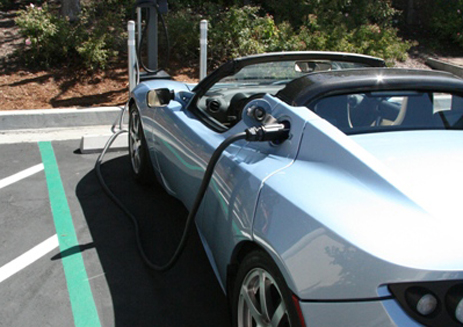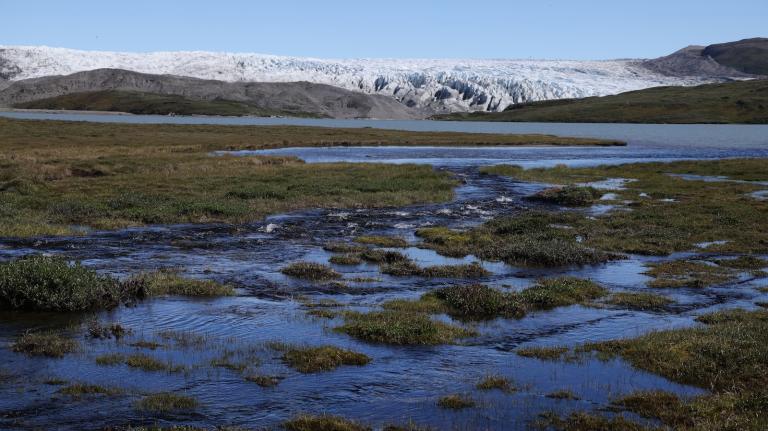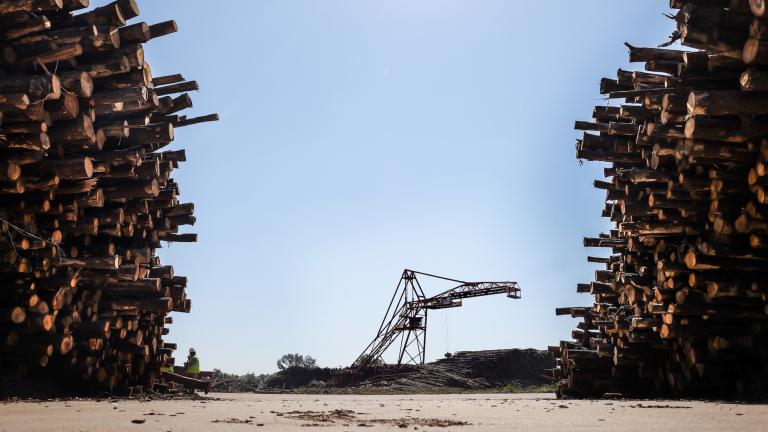First things first: Oil-spill updates continue to gush out of the Gulf and Washington at volumes difficult to estimate. BP initiated its risky “top kill” maneuver Wednesday and the Coast Guard reported cautiously this morning that the oil stream has abated. If the effort works, BP will begin to plug the well with concrete in the next day or so. President Barack Obama held his first press conference in 308 days this afternoon. He placed a moratorium on new deepwater drilling permits for six months and ordered the Interior Department to expedite its reforms of the key oil-industry regulatory office.
Blame has lapped up on the shores of the Potomac as crude sullies the Gulf coast, destroying livelihoods and wildlife. Obama spoke today after a week when scrutiny of the disaster led directly to the Department of Interior’s Minerals Management. A report from Interior’s inspector general accuses officials there of gross conflicts of interest and misconduct prior to 2007 (The report was commissioned before the accident but accelerated after).
Acting IG Mary Kendall writes to Interior Secretary Ken Salazar [PDF], “Of greatest concern to me is the environment in which these inspectors operate-particularly the ease with which they move between industry and government. While not included in our report, we discovered that the individuals involved in the fraternizing and gift exchange-both government and industry-have often known one another since childhood. Their relationships were formed well before they took their jobs with industry or government.” The report catalogs gifts, drug use, pornography, and fraternizing between the regulators and the regulated, including an incident when an MMS official interviewed for a job while on an inspection. The official found no violations and later got the job. Earlier today MMS chief Elizabeth Birnbaum was fired or quit — the president wasn’t sure-knocking one question off this list.
U.S. Geological Survey scientists have concluded that the disaster has unleashed between 17 and 39 million gallons of oil into the Gulf, making it far larger than the Exxon Valdez, previously the worst spill in U.S. history.
Nicholas Institute colleagues, led by Director Tim Profeta, held a wide-ranging panel on the oil spill, the state of energy legislation, and other issues in climate policy. View the second Nicholas Institute EnLIST webinar here.
Let the investigations begin: A BP official argued with oil rig engineers 11 hours before the April 20 explosion, about whether or not to drain drilling mud that protected the riser where the well meets the rig. The BP official, Donald Vidrine, was supposed to appear today at hearings conducted by MMS and the Coast Guard but called in sick. Earlier hearings revealed that BP was a month and a half behind operations on the rig it was paying $533,000 a day to use. Check out MSNBC’s Rachel Maddow in a report on how little safety questions and technology have changed in a generation.
Some journalists in the Gulf report heavy-handed treatment from BP staff and the local and federal officials who are working with them. BP and civic employees have restricted or prevented access to contaminated beaches and interfered with flyovers. A Mother Jones reporter, Mac McClelland, explains how tightly BP reins in local law enforcement personnel, and a CBS News crew was threatened with arrest.
Renewable renewable forecasting: A month before the 2008 election, the New York Observer depicted presidential candidates McCain and Obama respectively as the original Star Trek‘s impetuous hot-head Captain James T. Kirk and cool deliberator Mr. Spock. That caricature of the now-president is probably a good starting point to Christopher Beam’s questions to Slate readers this week: Why aren’t Democrats exploiting the spill emotionally? Shouldn’t the oil spill “make comprehensive energy legislation more likely, if not inevitable” rather than less likely? He writes, “There would come a point, you’d think, when the oil spill was such an unmitigated disaster, environmentally and politically, that Republicans would set aside their ultimatums about drilling, Democrats would set aside their paranoia about it, and members of both parties would support alternative energy legislation. Not all of them. Just a handful would be enough.” As for Obama, the New York Times‘ Jeff Zeleny describes his demeanor this way:
‘Every day I see this leak continue I am angry and frustrated as well,’ Mr. Obama said, his words not rising with volume or intensity.
The narrative in the legacy media appears to suggest that the downside to having a president that doesn’t lose is cool is that he doesn’t lose his cool.
Before tempers elevated to the point where Obama called his first press conference, public management of the crisis took the president to Silicon Valley, where he visited thin-film solar panel maker Solyndra. In requisite remarks about clean energy, he also mentioned Tesla Motors’ $465 million loan from the Department of Energy and its work with Toyota to build electric cars. The San Jose Mercury News dangles this line into its piece about Obama’s Solyndra visit without elaboration: “The visit, Obama’s second to the Bay Area since becoming president, shone a spotlight on Solyndra, a Silicon Valley company that has tried to avoid publicity as it prepares for its initial public offering of stock.” Now, if you wanted to avoid publicity, would you invite the president over?
What will the future of renewable energy look like? Michael Levi of the Council of Foreign Relations picks up a World Bank paper that analyzes 116 projections for renewable energy growth conducted over 36 years. The trend: No discernible trend?
Meanwhile, back in low gear…: The international climate conversation remains in a holding pattern. China reduced expectations, such as they are, for some kind of formal agreement in Cancun later this year, striving instead for a “positive result.” (Cleaning up before the guests come? Cancun mayor arrested for drug trafficking and money laundering.) Outgoing U.N. climate chief Yvo de Boer said that international talks in Bonn next week will try to graft parts of the December Copenhagen Accord into the formal U.N. process. Europe, left out of the key meeting between the U.S. and developing powers in Copenhagen, unilaterally upped its greenhouse gas emissions goals from 20 percent to 30 percent below 1990 levels by 2020. The E.U.’s chief climate official is under fire for failing to crack down on fraud in the continent’s carbon market.
Developed nations have chipped in $4 billion to slow deforestation, a half billion dollars more than they agreed to at the Copenhagen climate negotiations in December. By 2030, U.S. farmers could see more than $200 billion in gains as avoided deforestation removes unfair competition from the global market.
Greenland moving up in the world: Scientists continue to study ice loss in Greenland, a much-watched field of research. A new paper in Nature Geoscience reports that territory’s land itself (call it Greenlandland) is rising an inch per year as the ice above it recedes.
The 2010 hurricane season begins June 1. The National Oceanic and Atmospheric Administration predicts a very active hurricane season: “If the 2010 activity reaches the upper end of our predicted ranges, it will be one of the most active seasons on record.”
The oil spill lays bare the difficulty at the heart of communicating climate change risk: There’s no single company or administration to denounce and no poisonous gunk killing fisheries and suffocating ecosystems. Nations of the world would have addressed the problem long ago if greenhouse gas pollution rained back down as tar balls. One mile of highway driving spews a pound of carbon dioxide into the atmosphere. Imagine if all drivers threw a pound of trash out their windows every mile they drove. The trash would pile up. (Climate Post Trivial Pursuit!: Whose analogy is this? Can’t remember or find it.)
So … with the spill looking like it might be capped, we expect to return you soon to your regular invisible, odorless, slow-acting, and globally dispersed pollution concerns.
The Climate Post offers a rundown of the week in climate and energy news. It is produced each Thursday by Duke University’s Nicholas Institute for Environmental Policy Solutions.



